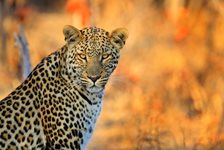
Zimbabwe’s Hwange National Park provides an interesting lesson in the history of conservation in Africa, particularly when examining the contrast between pre-colonial and Colonial approaches to land preservation.
Visiting the verdant park today, which is home to over 100 mammal species, including Africa’s Big 5, it is hard to imagine the same 3-million acre preserve as a barren expanse of lifeless land. This was the state of Hwange in 1930, when the exhausted tract was designated a National Park, simply because it was fit for no other purpose. It had taken less than a century for white settlers to transform the land from a well-balanced ecosystem to a depleted wasteland through large-scale farming of monoculture export crops such as maize, tobacco, and cotton, aggressive deforestation from mining and timber concerns, and the big game trophy hunting that was ever the scourge of Africa’s wildlife.
Hwange’s pre-colonial ecosystem was the result of centuries of indigenous conservation, which intuitively aligned good principles of agriculture and animal husbandry to a strong culture of religious beliefs linked to the land and nature itself. The region’s religious territorial cults believed in finding and preserving equilibrium between humans and their environment that maximized the fertility of the ecosystem. Regular crop rotation was deemed necessary by the cults to allow the fallow fields to “rest and heal” from the “wounds” inflicted upon them during periods of cultivation. The cults also practiced a highly effective form of conservation of trees and brush by denoting many groves “sacred” to their deities, just as they achieved effective wetlands conservation by the designation of sacred pools, ponds, and lakes. The warrior king of the Ndebele tribes, Mzilikazi, restricted access to the area, designating it a royal hunting preserve, thus controlling the practice of hunting big game and wildlife.
Colonial settlers took the opposite approach, believing that “nature” was in no way compatible with “civilization,” Their efforts to cordon off areas of the vast land tract for specific purposes seriously upset the balance that native tradition had so carefully preserved. The indigenous people who had farmed and hunted the land for centuries and knew how to preserve it, were banished and dispossessed from the area; the spread of Christianity diluted the strength of the cult worship which had played such an important role in pre-colonial conservation and lessened the important influence of the chieftains who had been so successful in imposing the rules that kept the ecosystem thriving.
It has taken decades of hard work to redress the damage done to the land and to restore its equilibrium and health, but today the park — Zimbabwe’s largest — has a reliable water supply from careful irrigation projects, and teams with hundreds of lions, elephants, buffalo, leopards, hyaena, giraffes, wildebeests, and impala as well as thousands of birds.
Spend thee exhilarating nights camping in Hwange National Park at the intimate Davison Camp on Alexander + Roberts’
Wild + Wonderful Southern Africa: Botswana, Victoria Falls, & Zimbabwe itinerary, always capped at 16 guests for an unforgettably intimate experience.